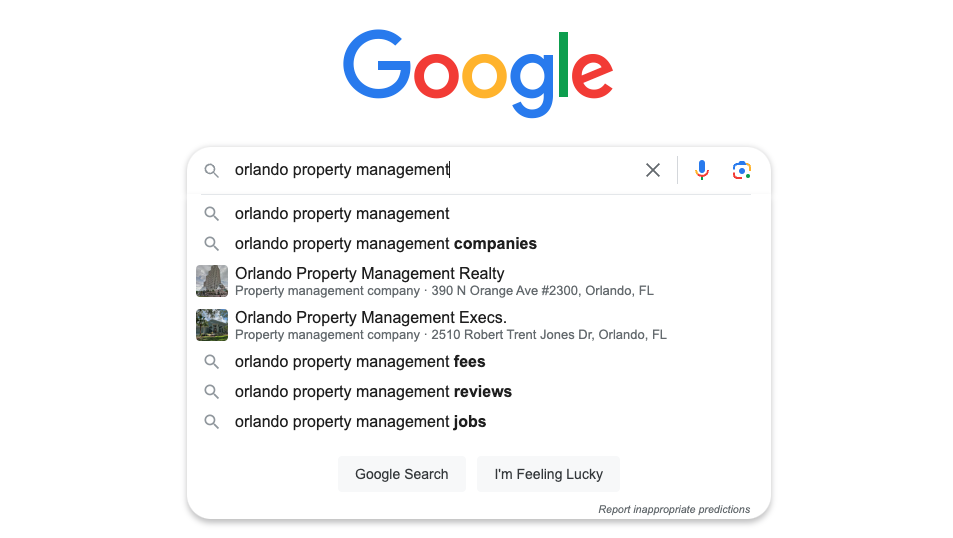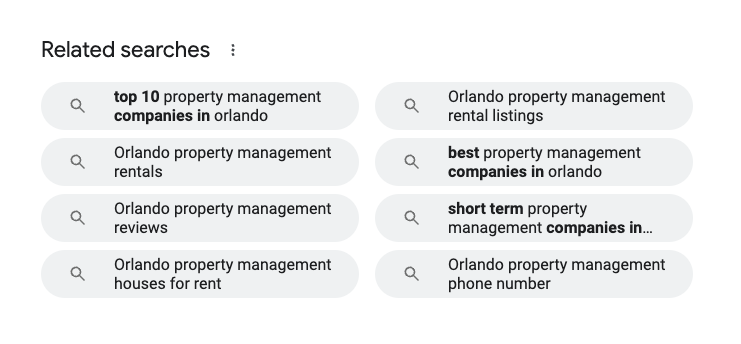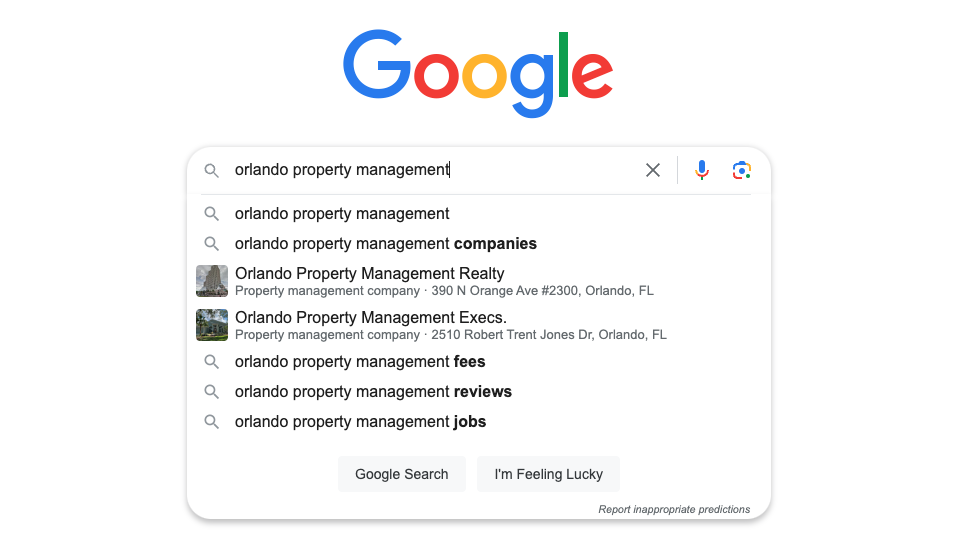
Do Your Property Management Keywords Have 2024 Vision?
Listen to the article
Do Your Property Management Keywords Have 2024 Vision?
Published February 10, 2020. Updated January 10, 2024.
I don't know about you, but the end of the year usually comes with a reminder to anyone within email distance to get their vision checked before HSA benefits expire. Additionally, moving into the new year should also be a reminder to make sure the "vision" you had in mind for your property management keywords is healthy and up to date.
Maybe your vision for 2024 has changed after meeting or failing to meet specific challenges, like improving property occupancy rates throughout the year or falling short of a targeted metric like average days to lease.
Just like your actual vision, property management marketing is a balance between near and far-sightedness: failure to update and inspect the keywords for property management you use for SEO can have unintended consequences down the line.
While inbound marketing content isn't "all" about the keywords anymore, they're still a crucial element that should be at the forefront of your content marketing efforts. So, today, our experts talk about fine-tuning your keyword strategy to end (and begin) the year strong!
Are Your Property Management Keywords Relevant in 2024?
Just as your optometrist wants to see if you can read the lines off the eye chart, you should be able to interpret your forecasted goals across spans of one month, three months, a year, and even decadal goals.
Focusing only on the near term may throw you far off course before you reach your long-range plan. Like a captain on an open sea, one small change in navigation at mile marker 1,000 can lead to serious deviations from your final destination!
What can you do to make sure your property management keywords are sustaining your goals — both now and in the future? Here are a few tips:
-
Use your goals to make a list of the top 10 topics relevant to the vision you have for your business. These topics will be used later to come up with keywords specific to your overarching interests.
-
Complete the outline by expanding your topics with potential property management keywords and phrases.
-
Think of this from your target customer's perspective: these keywords or key phrases you think are important are used to rank you in the SERPs (Search Engine Results Pages).
-
The point of this step isn't to pin down your keywords. Instead, brainstorm phrases or buzzwords you think potential customers may use in their search for content related to a particular topic. This list will be narrowed down later.
With this starter list, you're ready to find out if they're relevant to your property management business and goals.
Use the Tools of the Trade for Keyword Research
What is keyword research? It's the process of identifying words and phrases that people use in search engines. The goal is to optimize content around these terms to rank higher in search results, thereby increasing visibility and attracting more relevant traffic to your website.
Multiple data-driven tools are available to you for determining which property management keywords you're most likely to rank well for. Sometimes, reverse engineering your marketing strategy may provide substantial insight.
To start narrowing down your list of words for keyword relevance:
-
Use tools such as Google Analytics or HubSpot's Sources Report to determine which keywords are already helping your business dominate the traffic.
-
Investigate your website's traffic and peer through your organic search traffic to identify the keywords people use to find your site.
-
Repeat this exercise for all the topics you have.
If you're struggling to narrow down key phrases or frequently asked questions, reach out to your sales team and ask them for a quick brief on phrases used by their prospects and customers. Often, each area of the business comes with its own jargon, and specific acronyms may drastically impact your chosen keywords.
Look Into Related Search Terms
To find more keywords for property management that people may use regarding a specific topic, go to Google.com and enter your keyword or phrases of interest.
Then, look at the related search terms that come up.
-
Scroll down the page of Google's results after a search. About midway down the page (in most cases), you'll see suggestions for searches related to your original query.
-
These keywords may spark ideas for other keywords you should be taking into consideration when it comes to your 2024 vision.
-
If you're really feeling driven, you can also drill down another level by looking at Google search results for the related search terms you found and inspect their related search terms.

Google also likes to be helpful at the top of the page if you type your search into the URL bar or on the Google home page when typing your keywords or phrases into the search bar. The search engine serves up a list of related or suggested terms as you type!

Heads or "Long" Tails? Call It!
One-word keywords are just the start. As SEO (search engine optimization) and search engine algorithms have evolved, long-tail keywords (i.e., more specific phrases than one-word or "head term" searches) have become essential to integrate into inbound marketing content.
Property management companies should check for a mix of head terms and long-tail keywords on each topic. Here's the difference:
-
Head terms are keywords or phrases that are shorter and trend generic (usually 1-3 words).
-
Long-tail keywords are longer keyword phrases of three or more words.
It is important to have a combination of head terms and long-tail keywords to yield a well-balanced keyword strategy with both your near-sighted goals and long-term vision. Head terms are usually searched more frequently, but this makes them much more competitive and harder to rank for than long-tail terms.
What Does This Look Like?
To see it in practice, which of the following would be harder to rank for?
-
"What makes a great property management company?"
-
"Property management"
The correct answer is the latter. However, this isn't such a bad thing: while head terms generally draw the highest search volume (greater potential traffic), the traffic you'll get from the long-tail keyword is usually more desirable.
Essentially, the hits you get from a detailed, specific search are generally easier to interpret and target. The generic head term is also less likely to be a qualified lead.
Remember, the goal is to end up with a list of head terms and long-tail keywords that provide some quick wins while fine-tuning your property management keywords to support SEO.
See Your Competition's Strategy
To build a marketing campaign and strategy, it's essential to research how your competition ranks for these keywords. You should also make a note to re-evaluate their position over time. Ultimately, any changes also affect your strategy moving forward.
It's important to remember that a keyword for your competitor is not necessarily a keyword for you. However, seeing what your competitors are striving to rank for is a great way to help you re-evaluate your list of keywords.
How do you see what keywords your competitors are ranking for? Aside from an exceptionally long telescope or manually searching for keywords in an incognito browser, there are some free tools you can use to do some digging. Resources like SEMrush are excellent for getting a well-rounded view of your keywords and your competitors' keywords and how they can help you rank better on a search engine results page.

If your competitor ranks for keywords on your list, focus on improving your standing. However, don't ignore property management keywords your competitors don't seem to care about: this is an opportunity for you to take the lion's share.
As you develop your list of relevant keywords to apply in your content marketing efforts, try HubSpot's free SEO template to help you track and organize your keywords.
Make Time for an Appointment With Keyword Planner
Now that you've brainstormed some worthy property management keywords, it's time to use the Google Ads Keyword Planner to pare down your keyword list.
In the Keyword Planner (formerly the Keyword Tool), you can get search volume and traffic estimates for keywords under consideration. Before you delete anything, check out the trend history and projections of your keywords in Google Trends. Trending items are more worthy of your focus.
You can see whether some low-volume terms might actually be something you should invest in now — and reap the rewards later.
Good Keyword Relevance Leads to Better Property Management Marketing Success
You should now have a list of keywords to help define your marketing vision moving forward. While it took some time, it was probably more affordable than that pair of Ray-Bans.
Remember, keywords — like your vision — can change over time. Keep up with your relevance by evaluating the performance of your keywords at least once a quarter to maintain and grow your online presence. As you see opportunities to go after new keywords or reduce the usage of outdated words, update your content to keep it relevant.
However, your keywords are only as effective as the marketing strategy they're a part of! It's never the wrong time to examine your property management marketing strategy as a whole! If you need some guidance, schedule a thorough check-up with Geekly Media! As HubSpot Certified Diamond Partners, we're uniquely qualified to help you assess the health of your marketing strategy.


-1.png)
